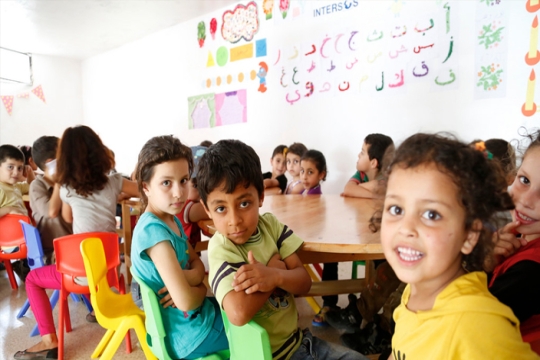
Content Warning: This blog discusses a variety of mental health topics, including anxiety, depression, and suicide. If you are struggling with mental illness, please know that you are not alone. Visit the RAC’s website for a list of hotlines, crisis resources, and Jewish community resources or view the National Alliance of Mental Illness COVID-19 Information and Resource Guide.
May is Mental Health Awareness Month. This month offers an opportunity to learn about mental health, combat stigma surrounding mental illness, support people experiencing mental illness, and advocate for policies that expand access to treatment. As the COVID-19 pandemic underscores the need for quality health care, there has never been a more important time to recognize that mental health is an essential component of overall well-being.
Mental illness affects millions of people in the United States; 1 in 5 adults experience mental illness and 1 in 6 youth aged 6-17 experience a serious mental health disorder each year. Research suggests that LGBTQ individuals, people of color, and other marginalized groups experience mental illness at above-average rates or with greater persistence. For example, LGBTQ youth are four times more likely to experience suicidal thoughts, self-harm, or attempt suicide compared to their non-LGBTQ peers.
Despite the widespread prevalence of mental illness, many people are still unable to access care, with an average delay of 11 years between onset of symptoms and treatment. Common barriers to accessing care include social stigma, lack of information about mental health services, cost of treatment, distance to treatment, and long wait times. Accessing treatment is especially difficult for low- and middle-income households, LGBTQ individuals, rural communities, and people of color.
COVID-19 has worsened the mental health crisis in the United States. Not only has the pandemic created new psychological trauma due to economic uncertainty, death of loved ones, and social isolation, it has also triggered and intensified symptoms for people with existing mental illness. Nearly half of Americans say that the coronavirus is harming their mental health, while crisis hotlines and online therapy programs report significantly increased demand for their services. Congress has directed very little stimulus money towards mental health care, and medical providers face challenges providing telehealth and bringing services online. Access to remote care is important not only while providers are physically closed during the pandemic, but also once offices reopen, as more than 60 percent of counties still do not have a single practicing psychiatrist. Earlier this month, the RAC sent an interfaith letter asking Congress to prioritize mental health in the next coronavirus legislative package. We urge Congress to allocate significant funding for mental health services (especially for front line health care workers) and ensure that mental telehealth is covered at parity with telehealth for physical illnesses.
The federal government must also prioritize mental health and explore new avenues for care in the long term. The public education system is uniquely positioned to provide mental health services for children and adolescents, but many schools lack the resources and training to do so. The bipartisan Mental Health Services for Students Act (H.R. 1109/S.1122) would provide $200 million in grant funding per year for five years to expand mental health services in public schools, which will become especially important when students return to classrooms. Urge your member of Congress to support the Mental Health Services for Students Act.
Judaism teaches that mental health is equally as important as physical health and is clear about our responsibility to ensure health care for all people. In the traditional Mi Shebeirach (prayer for healing), we pray for a r’fuah shleima (a complete recovery), which includes r’fuat hanefesh ur’fuat haguf (a healing of the body and spirit). Although Judaism acknowledges a distinction between mental and physical health, our tradition generally situates both on an equal level, recognizing that both are integral components of overall well-being. Our tradition teaches that providing health care is not just an obligation of the doctor, but for society as well. It is for this reason that Maimonides listed health care first on his list of the ten most important communal services a city must offer its residents if the city is to be found worthy for a great scholar to live there (Mishneh Torah, Hilchot De’ot IV:23). As Jews, we believe that the government has an obligation to ensure that all people can access health care, including mental health care.
As we observe Mental Health Awareness Month, let us remember the importance of mental health and work towards a society where all people can access the care they need.
Related Posts

Native American Heritage Month: Continued Support for the Indigenous Population is a Necessity

Congress Must Expand the Child Tax Credit, a Powerful Tool Proven to Reduce Poverty


